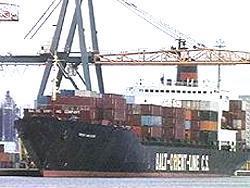Public Comment Period Extended on Section 301 Hearing for Proposed Tariffs
Washington DC, August 7, 2018--The scheduled start date of the Section 301 hearing (August 20) has not changed. The Section 301 Committee may extend the length of the hearing depending on the number of additional interested persons who request to appear.
In a notice published on July 17, 2018 (83 FR 33608), the U.S. Trade Representative proposed a modification of the action taken in this investigation in the form of an additional 10 percent ad valorem duty on products of China with an annual trade value of approximately $200 billion. The July 17th notice sought public comment and provided notice of a public hearing regarding this proposed modification of the action in the investigation. On August 1, 2018, the Trade Representative announced that the President had directed the Trade Representative to consider raising the level of the additional duty in the proposed supplemental action from 10 percent to 25 percent.
In light of this possible increase in the rate of additional duty, the Trade Representative is extending certain comment periods set out in the July 17th notice.
The Section 301 Committee will convene the public hearing in the main hearing room of the U.S. International Trade Commission, 500 E Street SW, Washington, DC 20436 beginning at 9:30 a.m. on August 20, 2018.
Stifel released a report yesterday stating the pros and cons of how the proposed 25% tariffs would effect the publically traded home furnishings companies that the firm closely monitors:
Pros On the Supply Side
Tempur Sealy International (TPX), Culp, Inc., and Leggett and Platt (and Sleep Number (SNBR) to a lesser extent):
The domestic bedding players would all be happy to see a 25% tariff on imported mattresses from China.
Mohawk (MHK):
We have written about the shifting dynamics in the flooring space with LVT growing at a very rapid pace, with the vast majority of LVT currently being imported product from China and sold under various names by the domestic players. MHK is focused on developing domestic production and would significantly benefit from higher costs to source LVT from China although it does source product from China and Korea. While it’s true MHK is going to source more in the short-term to keep up with the competition in terms of sales velocity, over the longer term MHK would be better positioned by having a head start on domestic production. It will be difficult for those companies sourcing product from China to find alternative sources from other countries in the near term.
Cons at Retail
Floor & Décor (FND):
As of Q2, FND sourced 47% of product from China. Given the company’s positioning as the low cost provider of hard surface flooring, a 25% increase on half the assortment would be a significant event. The company is of course working on diversifying sourcing to other countries but that would not be immediate. The company certainly would lean on its suppliers as FND is a very important and growing customer of most of its suppliers. Certainly, the competition may be forced to raise prices on certain products and that would give FND some cover. We do not think the company would be keen on passing along a full 25% cost increase to customers, particularly at opening price points where we assume a lot of the Chinese imports are concentrated. The company has the advantage of scale with many of its vendors but we believe the 47% exposure to China is higher than most all of its competition including most notably the home centers.
Lumber Liquidators:
LL (Hold, $19.01) imports about 40% of COGS from China, which we assume is concentrated in the vinyl, laminate, and engineered wood categories. We note the majority of growth in product sales has been from the vinyl and laminate products. It is fair to say though, that the competition selling these categories would also be negatively impacted and we think it is more likely that the margin impact would be short term and ultimately prices would simply be passed along to consumers.
The Tile Shop:
On the most recent conference call, management said Asian vendors are roughly half of the product assortment and China is "well represented." The good news for Tile Shop (Hold, $7.90) is the company has a good buffer to absorb margin if necessary and potentially has more flexibility to raise prices as well, given the skew towards higher prices and less mix of very low opening price points.
Related Topics:Lumber Liquidators, Mohawk Industries
